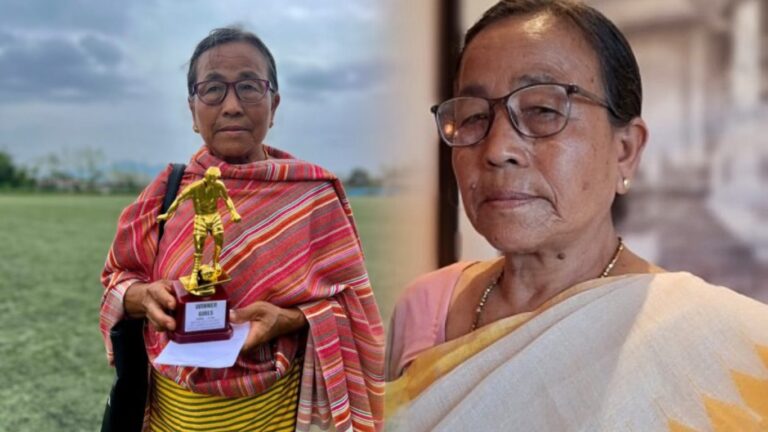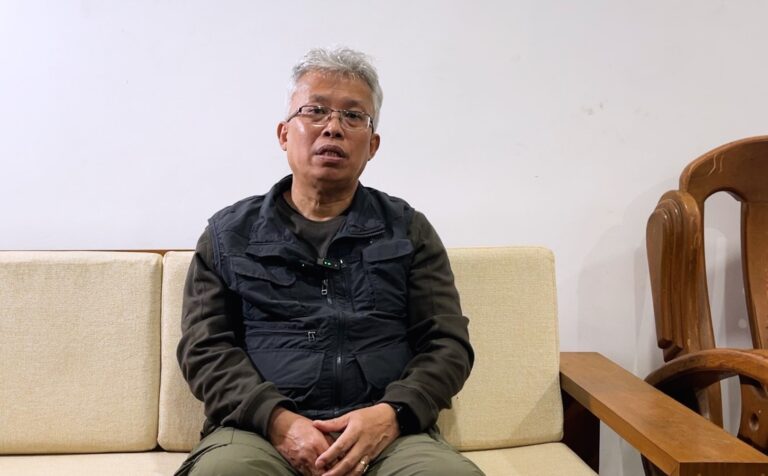Manipur: Arambai Tenggol Backs Tamil Nadu Governor’s Warning on Illegal Immigration — Demands NRC Now
Arambai Tenggol (AT), is a Meitei activist organisation group in Manipur, publicly backed recent remarks by Tamil Nadu Governor Ravindra Narayana Ravi warning that illegal immigration from Bangladesh and Myanmar threatens to destabilise India — even suggesting it could create conditions comparable to partition. AT echoed these concerns, alleging illegal settlers are encroaching on reserved forest lands, cultivating poppy, and enabling narco-terror factions; the group has urged immediate implementation of the National Register of Citizens (NRC) in Manipur and called for stronger border fencing and stricter anti-infiltration measures. The statement is part of a broader push in parts of the Northeast for tighter citizen verification and border controls.
The short version: what happened and who said what
On September 1, 2025, India Today NE published that Arambai Tenggol expressed full support for Ravindra Narayana Ravi’s remarks that illegal immigration from Bangladesh and Myanmar is not just economically driven but can be a strategic attempt to destabilise India — even framed in the stark metaphor of “recreating conditions akin to a partition.” Arambai Tenggol amplified concerns that illegal settlers have allegedly encroached on reserved forests, occupied property, and engaged in poppy cultivation funding violent actors. The group demanded immediate implementation of the NRC in Manipur, stricter border fencing, and reinforced enforcement. A named AT representative called the governor’s words “a wake-up call.”
The governor’s remark: what was actually said?
The India Today NE article attributes to Governor Ravindra Narayana Ravi a stark framing: illegal immigration, the governor said, is not merely economic migration but can be a strategic effort to alter demographics and destabilise the country — a claim that invokes the politically charged notion of partition. Whether one accepts such language as measured analysis or sees it as alarmist, the words matter because they shape official discourse. When a person holding gubernatorial office speaks about migration in existential terms, it changes how political actors and civil society react — sometimes by pushing for immediate administrative actions like the NRC. In this case, Arambai Tenggol embraced the governor’s framing and asked for urgent implementation in Manipur.
FAQs
Q1: What exactly did Arambai Tenggol demand and why now?
A1: Arambai Tenggol asked for immediate NRC implementation in Manipur, stronger border fencing, and urgent action to prevent illegal entry, citing alleged encroachment, poppy cultivation, and the rise of narco-terror factions. The demand comes amid heightened anxieties over demographic changes and following public remarks by Tamil Nadu Governor Ravindra Narayana Ravi that framed illegal immigration as a strategic threat.
Q2: Does calling for an NRC mean mass deportations will start immediately?
A2: Not automatically. An NRC call is a political and administrative step that would require central approval, massive logistics, and legal frameworks. Implementation could take years and would need safeguards for appeals and humanitarian protections. Historically, NRC-like processes have required lengthy adjudication and can create legal limbo if not handled carefully.
Q3: Are the claims of poppy cultivation and narco-terror groups proven?
A3: The India Today NE article reports AT’s allegations; reporting them as claims does not equate to judicial proof. Verification demands law enforcement investigations, seizures, and judicial outcomes. Independent investigation and corroboration by police or anti-narcotics agencies would be necessary to move these claims from allegation to established fact.
Q4: How will other communities in Manipur react to an NRC push?
A4: Responses will vary. Some groups may support measures to secure borders; others — particularly hill tribes or vulnerable communities — may fear exclusion or misuse. That’s why inclusive dialogue and legal protections are essential to avoid widening mistrust.
Q5: What can ordinary citizens do to help de-escalate tensions?
A5: Citizens can promote verified information over rumours, participate in local dialogues, support due process and humanitarian safeguards, and pressure elected officials to pursue evidence-led policies. Community-level bridge-building and clear channels for grievances reduce the chance that anxiety turns into violence.


